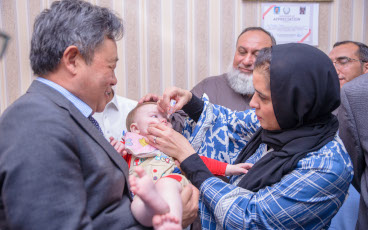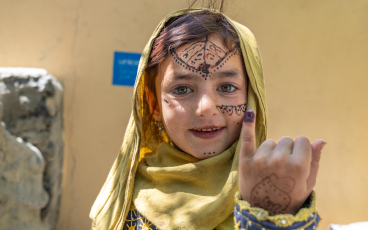Intensifying Outbreak Response Efforts Across Nigeria and the Lake Chad Basin
Regional emergency outbreak response is being further intensified, amid humanitarian crisis and insecurity.
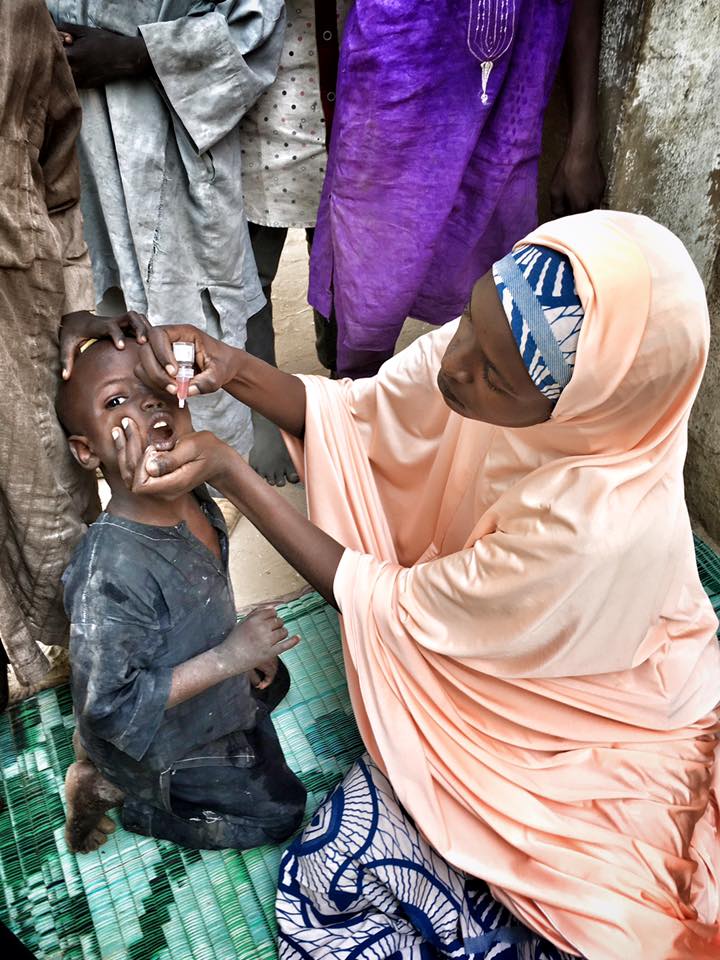
Experts from across the Global Polio Eradication Initiative (GPEI) partnership convened an emergency meeting in Abuja, Nigeria, from 3 – 5 November. Led by senior epidemiologists from the governments of Nigeria and neighbouring countries, the group examined a detailed review of the current impact of the outbreak response, and identified area-specific challenges and prioritized operational plans accordingly.
The detection of new wild poliovirus type 1 (WPV1) cases in Borno, Nigeria, in August – the first detected on the African continent in more than two years – has prompted an unprecedented response. The outbreak was immediately declared by both the Government of Nigeria and governments of surrounding countries to be national and regional public health emergency. This opened the way for a regional outbreak response, mobilizing emergency resources from across the public and civil society sectors.
Thousands of health workers across the region have been mobilized and trained, and in Borno alone more than 1.7 million children have been vaccinated. But many more continue to be un- or under-immunized, either due to operational deficits in outbreak response implementation, hampered access due to insecurity or large-scale population movements within countries.
Unless these missed children are rapidly reached, the risk remains that the current outbreak could spread further, including internationally, and cause more preventable, incurable paralysis.
Access and reaching populations everywhere
Insecurity, geographical challenges and difficulties with communication in some of the hardest to reach areas are providing barriers to reaching all children. Internally displaced persons (IDPs), refugees and nomads are particularly vulnerable groups, with insecurity blocking transit routes and the ability to accurately predict population size ahead of vaccination campaigns reduced. Due to population displacement, detailed micro-plans are frequently disrupted.
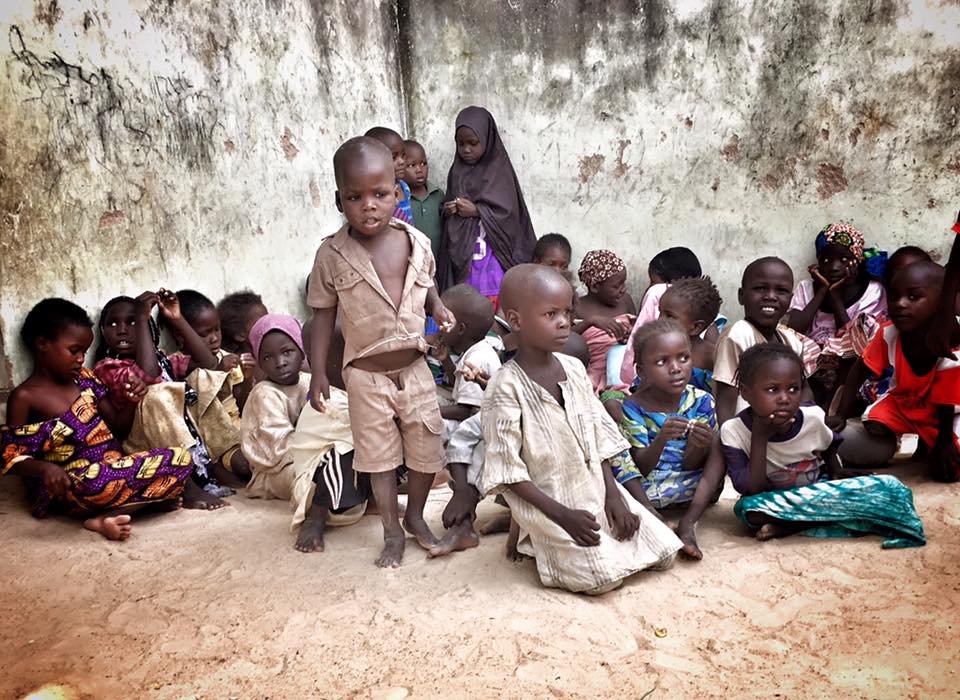
|
Cross-border coordination, embedding the response within the broader humanitarian emergency context, and innovating rapidly to adapt strategies to local challenges is what has stopped similar outbreaks with similar challenges elsewhere in the world. |
Yet despite these challenges, the GPEI can draw on a vast array of experience from running outbreak responses in similar settings, most recently in the Middle East, Central Africa and the Horn of Africa from 2013-2015. These existing, proven strategies are rapidly adapted to the evolving environment. Permanent vaccination teams are now in place, as and when an area becomes accessible, to rapidly implement ‘mini’ vaccination campaigns in between larger-planned activities. Such teams are also critical to reach populations as they leave inaccessible areas. Children in both formal and informal IDP camps are a particular focus for the delivery of the polio vaccine alongside other humanitarian and basic health needs.
Assuming that many children living in conflict-affected areas will not have been vaccinated for several years, the target age group has been raised to protect children over 5 years of age.
The Volunteer Communication Network of vaccination advocates within communities has been expanded to cover Internally Displaced Populations living in camps and host populations, while Koranic School teachers have been engaged to address non-compliance and the mobilization of women and youth to ensure local protection for vaccination teams.
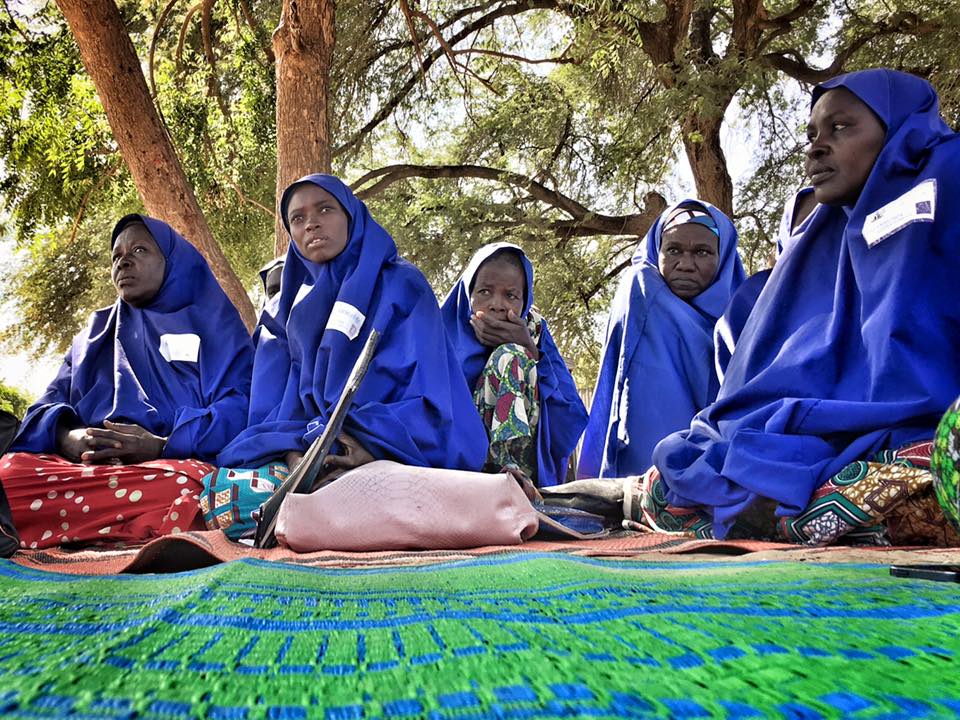
Coordinating across borders
While cases of polio have only been found in Borno, extensive population movement, insecurity and previous cross border population movements require the outbreak response to cover the entire Lake Chad region. Cameroon, the Central African Republic (CAR), Chad, Nigeria and Niger are working together to track population movements and addressing the challenges inherent in accessing some hard-to-reach areas in each country, including sourcing communication equipment to operate where there is a lack of telecommunication network, closed borders in some places and language barriers. Efforts are being intensified to map out the seasonal movement of nomads, identifying resting places and water points with the support of nomadic community leaders in order to improve micro-planning to inform the response. In Chad, vaccination campaigns are providing livestock vaccines alongside polio vaccines to children in order to increase uptake in nomadic communities.
It is not insecurity alone that leads to hampered access. Sometimes it is simply a more natural phenomenon: the rains! The rainy season in the region typically runs from June to mid-October. Some areas are completely cut off from roads and other transport networks as a result of the associated flooding. With the rainy season now over, many areas and populations will be able to be reached with polio vaccine and other urgent health services.
Stopping outbreaks in such challenges settings is possible
There is no doubt that running an outbreak response with such challenges is far more complex, dangerous, costly and slower than under normal circumstances. However, what is equally clear is that the plans being intensified and implemented across the region are having an impact, and will continue to have an impact. Cross-border coordination, embedding the response within the broader humanitarian emergency context, and innovating rapidly to adapt strategies to local challenges is what has stopped similar outbreaks with similar challenges elsewhere in the world.
The groundwork set by this first phase of the outbreak response has set for reaching previously missed children in late 2016 and throughout 2017.
With continued leadership of political, health and community leaders at the local, national and regional levels alongside the international development community, this outbreak will be stopped and children across Africa protected against polio.






